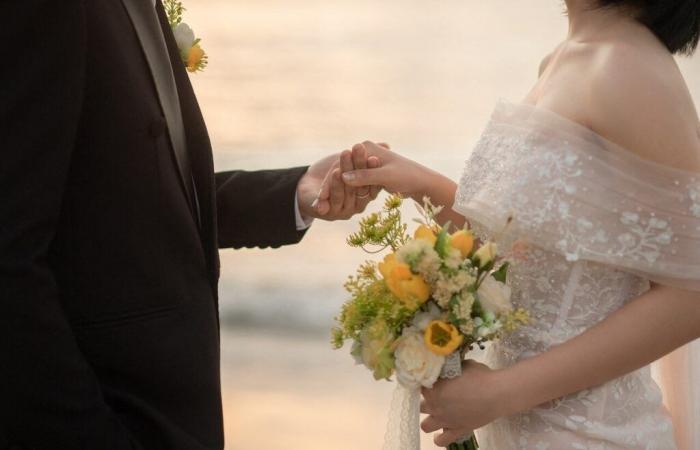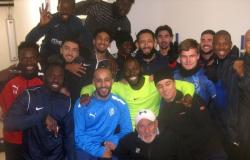Par
Editorial News
Published on
Nov. 17, 2024 at 6:02 a.m.
See my news
Follow News
Simple, practical and free, the civil solidarity pact – more commonly called “ pacs » – attracts many couples every year. In 2022, according to the National Institute of Demographic Studies (INED), there were 209,827 civil partnership declarations in France.
If you are thinking of taking the plunge and soon uniting with your other half, the civil partnership could be a great idea. alternative to marriage. But this document, which celebrated its 25th anniversary on Friday November 15, 2024, also has some drawbacks.
What is the point of the civil partnership?
Marriage and civil partnership constitute contractual elements uniting two people and officially organizing life as a couple. The first is governed by articles 143 to 164 of the Civil Code, the second by articles 515-1 to 515-8 of the same Code.
The civil partnership is more recent than marriage: it has only existed since 1999, when it became a concrete tool making it possible to unite heterosexual couples but also two people of the same sex (before marriage for all was introduced). be authorized in 2013).
By entering into a civil partnership, the couple ensures securityin the sense that it is a commitment to common life : you formalize a relationship, you decide on a common residence, you promise mutual financial assistance and you confirm mutual assistance (if your spouse becomes unemployed or in the event of illness, for example).
The default matrimonial regime is separation of property(each person remains the owner of their property before and during the civil partnership and, in the event of separation, each recovers their own assets).
Joint account, strict or non-strict sharing of property, payment of debts, taxes, social protection… To find out everything about the advantages and disadvantages of the civil partnership, but also compare it to what marriage guarantees, you can consult our detailed article on the subject .
Who can enter into a civil partnership?
To enter into a civil partnership, both people in the couple must complete three conditions
each, as the French administration website points out:
- Be at least 18 years old;
- Not already be married or in a civil partnership;
- Not having a direct or too close family connection with the other partner. In other words: father, mother, grandfather, grandmother, son, daughter, grandson, granddaughter, brother, sister, half-brother, half-sister, uncle, aunt, nephew, niece, mother-in-law , father-in-law, son-in-law, son-in-law, daughter-in-law. On the other hand, you can enter into a civil partnership with a first cousin.
In your civil partnership file, you must sign a sworn declaration of non-kinship and non-alliance.
Note that, unlike marriage, entering into a civil partnership does not include changing your name to use that of your partner.
How do we enter into a civil partnership?
To enter into a civil partnership, you can choose:
- Either draw up the civil partnership agreement with your partner before go to the town hall(in this case, it is free ) ;
- Eithercall a notary(but there is a charge). The service-public.fr site reveals that the cost of drafting the civil partnership agreement is 101.41 euros including tax, to which must be added a registration fee of 125 euros.
And to dissolve a civil partnership?
In the same way that it is easy to enter into a civil partnership, it is easy to break up. One or both members of the couple must initiate this dissolution.
The request comes from only one of the two partners? “The process is carried out by a justice commissioner, depending on the authority which registered your civil partnership,” indicates service-public.fr.
Both partners agree? You must complete a joint declaration form for the dissolution of a civil partnership and send it to the town hall (if the civil partnership was concluded after November 1, 2017) or to the court registry (if the civil partnership dates from before November 2017). ). If the civil partnership was concluded with the notary, you must contact him to cancel it.
Note, however, that the civil partnership is automatically canceled in the event of marriage and death.
Follow all the news from your favorite cities and media by subscribing to Mon Actu.






